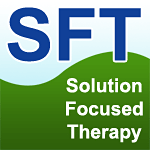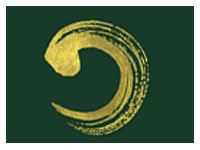|
|
|
|
|
Holistic Therapy & Personal Development Services
Adhering
to National
Occupational Standards & |
|
LOCATIONS |
ISSUES |
THERAPY |
ABOUT US |
||
  Fellows of the Society of Holistic Therapists & Coaches www.societytherapistscoaches.co.uk  About Us: Insured Professionally Registered Qualified to real standards Adhering to NOS Dedicated to Ongoing development Adhering to codes of ethics Involved in training provision Therapists with Supervision access First established 1993    Qi Gong Alliance |
Welcome to Scotland's Premier Therapy and Holistic Personal Development Site'Therapeutic care & Personal Development - The solution to your problems is in you'
Holistic psychology in Edinburgh and Glasgow.We are complementary health practitioners, not alternative health practitioners. This means that we work WITH the medical profession. If you have an illness or injury, or if you are going to embark on a new diet, fitness plan or if you have any uninvestigated symptoms, you must consult your medical doctor. Psychotherapy , Holistic psychology & Psychoanalysis in Edinburgh and GlasgowStuart: Holistic psychologist, psychotherapist, counsellor and solution focused psychoanalyst (also Hypnotherapist, Life Coach and NLP Practitioner) Denise: Holistic psychologist, counsellor and complementary health therapist. Stuart began his career with training in analysis, stress counselling and hypnotherapy. This training took 3 years to complete, over 200 assessed client cases under supervision, and a required client approval rate of 80%. In 1996 he was assessed in his ability to provide analysis, hypnotherapy, stress management, stress counselling, NLP and complementary health therapies including specific training and coaching provision as part of an NVQ Level 4 in Training and Development assessment. This included assessment of lecturing provision for a local education authority. Since that time he has also trained in counselling and psychotherapy. He has also completed a variety of training courses in different models of psychology and philosophy, both eastern and western models. He has recently completed a MSc Psychology, award date 31 July 2011. Psychoanalysis is a very specific form of psychological therapy which does not have the same characteristics as CBT or other psychotherapies often seen in the NHS. Psychoanalysis is a process of cooperative discovery and empowerment between therapist and client where the client's issues are not seen as medical, nor as conditions to "treat". The relationship between therapist and client is professional, yet complex. The dynamic is not one of an all knowing all seeing expert "helping" or "treating" a client, but rather the therapist is a guide and "fellow traveler" on the client's journey. In psychoanalysis and holistic psychology the person is seen as a whole, not as a "patient" who has "conditions" to "treat". Thus a major aspect of the work between therapist and client is on self exploration and development. Because a process of development is very personal, dynamic and fluid, assessment methods can not be easily used to identify specific outcomes. By the very nature of the work, the client often does not know exactly what they are aiming to "achieve" from the process, merely that they need to work on their personal development.
In many cases clients have been diagnosed by medical professionals as having various pathologies or conditions. Often in psychoanalysis these labels are not very helpful since the therapist works with the person, not the condition. Again, unlike the NHS models of psychotherapy, in holistic psychology and psychoanalysis we do not "treat", nor do we "diagnose". Where appropriate of course the client is referred to medical professionals for assistance.
Stuart provides "holistic" psychology assistance drawing from a range of philosophies and models including western, multi faith, eastern, spiritual and alternative. Eastern models include Taoist healing methods and eastern Zen & Buddhist models including Morita and Buddhist Object Relation Theory, Naikan and Mindfulness. Meditation, Qi Gong and Reiki are also employed. Stuart has completed externally accredited training courses at levels 3 and 4 (vocational) and university modules at undergraduate, post graduate and certificate levels. He has also written externally accredited training courses in a range of methods and topics including NLP (Level 4), Anger management (level 5), Stress management (level 4), Mood disorder management (level 5), Joint NLP and Coaching (level 5), Life coaching (Level 4), Joint Coaching and counselling (Level 5), Japanese Holistic Practitioner (Level 5) and Holistic Therapeutic Practitioner (Level 4).
Stuart uses solution focused psychoanalysis drawing from the vast range of models and psychological schools of thought in the west. By having completed extensive counselling, psychotherapy, psychology, hypnotherapy, NLP, Coaching and philosophy training Stuart is able to draw on models and methods to meet the needs of the client. "Solution focused" can mean assistance based on assisting with a specific issue such as anger, blushing, public speaking, confidence, self image etc. Often however the "solution" the client is seeking is personal empowerment and self knowledge. He employs spontaneous style Qi Gong, Chi breathing, Zen Reiki, meditation, visualisation and mindfulness techniques from Buddhism in his practice. He also employs Taoist philosophy, Buddhist philosophy, interfaith philosophy and japanese complementary holistic styles in assisting his clients.
Hypnotherapy and NLP are used where appropriately, including the use of hypno-analysis, a trance based form of psychoanalysis. These methods can also be used for gentle behaviour modification.
Naturally analytical and listening skills which also exist in psychotherapy and counselling are often used in coaching, personal training, NLP, hypnotherapy, psychology and generally in holistic and complementary therapies.
Holistic psychology and psychoanalysis is often guided by theory and thinking from subjects including Eastern Medicine, Philosophy, Theology, Social Policy, Health Education and Psychology. Stuart and Denise have completed a range of training courses and qualification courses in these topics and are committed to further University study of these topics in order to inform and develop professional practice.
Denise began training in complementary health in 2004 and has completed training in crystal therapy, nutritional therapy, herbalism, life coaching, counselling, oriental health diagnosis, hypnotherapy and complementary therapy. Methods include coaching, energy kinesiology, relaxation therapy, visualisation, meditation and holistic psychology. Denise has completed a range of vocational training awards externally accredited at levels 4 and 5. She has also completed undergraduate university modules in social policy, health, biology, counselling and psychology. Denise is a complementary health therapist and holistic psychologist. She also assisted Stuart in co-writing the Level 4 Holistic Therapy Practitioner training course and elements of the Japanese Holistic Practitioner (level 5) course. "Who understands the world is learned;Who understands the self is enlightened. Who conquers the world has strength; Who conquers the self has harmony. Who is determined has purpose; Who is contented has wealth. Who defends his home may long endure; Who surrenders his home may long survive it" TaoDeChing - Lao Tze
There are many different sorts of psychological therapy and theory. These include:
Eastern Models are different from Western medical models in a range of ways including:
Cognitive Behavioural Training / Therapy / CoachingCBT or CBC is referred to by different therapists as either Cognitive Behavioural Therapy, or Cognitive Behavioural Training / Coaching. The difference is in the approach and practice style of the therapist. As the name suggests CBT is about:
CBT works best when combined with other methods and styles like life coaching and hypnotherapy. A good CBT practitioner will have comprehensive psychotherapy and counselling skills. A common form of CBT is "Stress Inoculation Therapy" which is a process used to address phobias, fears and feelings of discomfort. Reiki in Psychoanalysis
Qualifications and StandardsAs with all therapies the practitioner should adhere to the National Occupational Standards (NOS Counselling) and have recognisable qualifications. These include ASET 3 and 4 awards. Stuart: Integrated Therapeutic Counselling ASET Level 4, Psychotherapy ASET level 3 & 4, Counselling Grief and Bereavement ASET level 3, NVQ accreditation in appropriate area of competence, Multiple diplomas in Psychoanalysis and Stress Counselling. Denise holds an ASET Level 4 in Professional Therapeutic Counselling and other diplomas in counselling and psychotherapy. Both therapist have completed multiple university modules at various levels and both are dedicated to ongoing professional training at university level. Both therapists have faith based and eastern philosophy based awards at post graduate and doctorate level from the Interfaith Seminary. Stuart is a Senior Professor of Psychoanalysis, Philosophy, Holistic Psychology and Religious Studies, U.K. Division, Interfaith Seminary ( and Chancellor of the UK Division). Stuart is a full member of the National Association of Counsellors, Hypnotherapists and Psychotherapists. He is also a full member of the Institute of professional psychologists: IPP. Denise is registered with the CCC Counselling register and is also an associate IPP member. We support the coming voluntary regulation of psychotherapy and counselling. Stuart is a CNHC registered hypnotherapist (voluntary regulation of hypnotherapy).
Clinic locations: Edinburgh and Glasgow In the first instance drop us an email or use the feedback form to contact us. We can then advise whether we feel we can appropriately assist you. To
Contact Therapy Services
use
Email us
Would you like to train as a professional therapist and gain an award from a fully accredited awarding body? Click: HERE
Would you like to train to be a CBT coach or consultant? Click HERE for training options
|
|
||||||||||||||||||||||||||||||||||||||||||||||||||||
|
To
Contact Therapy Services
use Email us Listed with GoToSee – The Health & Therapy Directory www.scotlandtherapy.co.uk http://www.therapistregister.co.uk/ |
||||||||||||||||||||||||||||||||||||||||||||||||||||||
| Key
Words for Search Engines: Edinburgh, Glasgow, Scotland. CBT, Cognitive Behavioural Therapy and training. Counselling and psychotherapy. Counsellor and Psychotherapist. Hypnotherapy, Hypnotherapist. Life Coach, Life Coaching. NLP Neuro Linguistic Programming. Accredited Therapists. Registered Therapists. Therapy and holistic healing. Anger management. Stress Management. Diet and nutrition. Weight loss and exercise programmes. Crystal healing and gemstones. Pastoral and spiritual healing. Multi faith and Wiccan healing. Reiki and energy healing. Relaxation therapy. Confidence, nerves, depressed feelings, anxiety, depression, self help, self hypnosis, hypnotist, hypnosis, trance. Phobias, fears, panic, frustration, aggression, violence, abuse. Drugs and alcohol. Eating disorders. Addictions, smoking, drugs, gambling. Personal Development. Sports Hypnosis, performance hypnosis, NLP for sales and performance. Psychotherapy Edinburgh. Psychotherapy Glasgow. Counselling Edinburgh. Counselling Glasgow. CBT Edinburgh. CBT Glasgow. Psychology, psychoanalysis, psychoanalyst, psychologist. Psychologist in edinburgh. Psychologist in Glasgow. Holistic psychologist in Edinburgh and Glasgow. |